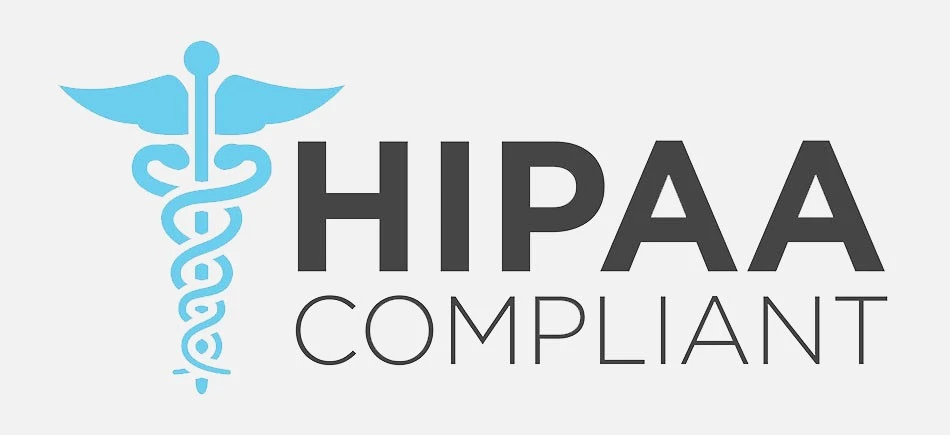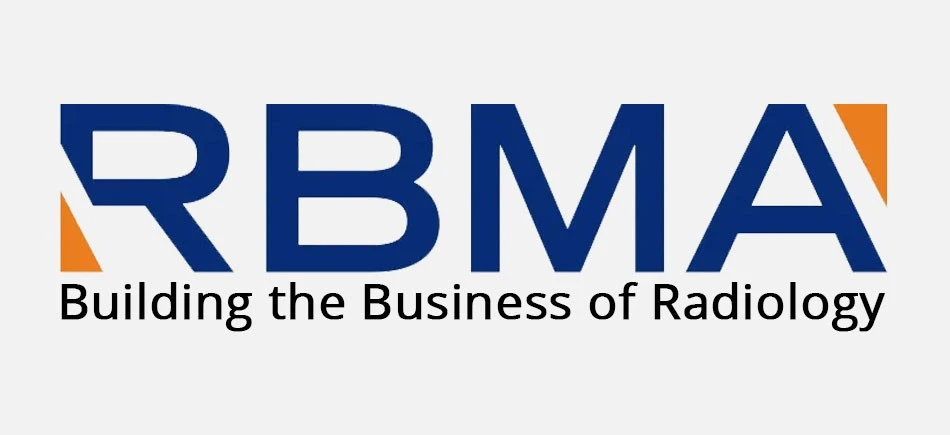Struggling with complex administration and intricate billing? Is pressure for top-tier patient care impacting your profits? This is where Revenue Cycle Management (RCM) comes into play. With RCM, you can streamline your operations and recover financial stability, allowing you to return your focus where it belongs - delivering outstanding medical care.
In healthcare, revenue cycle management services are pivotal for securing fiscal growth. By implementing advanced RCM strategies, healthcare providers can improve their data accuracy and reporting capabilities. This commitment to refining the revenue cycle not only streamlines billing and maximizes reimbursements but also supports elevated standards of patient satisfaction. Let us delve into the intricacies of RCM Services in the healthcare sector and discover how it amplifies profits for various healthcare entities.
An Intriguing Intersection: Where Patient Care Meets Financial Health
RCM combines the clinical side of healthcare with the business side by bringing together administrative data with treatment details. It optimizes the financial journey from the moment a patient makes an appointment to when all medical bills are paid in full. By merging insurance information, demographic specifics, and medical history into a single coherent process, coherent RCM practices lead to a seamless profit cycle.
Decoding the Complexities of the Healthcare Revenue Cycle
By integrating robust RCM strategies, healthcare centers can simplify patient registration, improve charge capture, and expedite payment collections. Implement RCM to ensure compliance and boost overall profitability.
Laying the Foundation - Pre-Authorization and Eligibility Verification
In a study published by the American Journal of Managed Care, 86% of claims denials are due to errors in this stage in the revenue cycle management process. Confirming a patient's insurance validity assures providers that payment will, indeed, be received for the services rendered. It helps in avoiding unnecessary denials.
The Money Move - Claims Submission
Discrepancies in claim submissions lead to unwarranted denials and ultimately delayed or lost payments. As per Becker's Hospital Review, approximately 80% of medical bills contain at least minor mistakes. Thus, error-free claim submission to insurance companies is paramount in ensuring prompt remuneration.
The Pursuit of Payment - Collection Cycle
Chasing unpaid patient bills and taking them to fruition is one of the most crucial tasks in the revenue cycle. It requires thorough follow-up on unpaid claims, resulting in effective claim conversions.
The Final Assessment - Medical Service Review
This last phase involves the meticulous evaluation of healthcare services delivered. It assesses the necessity, efficiency, and suitability of services, assuring a fair balance between quality care and profitability.
The Benefits of Harnessing the Healthcare Revenue Cycle
Efficient administration of the healthcare revenue cycle can unlock significant benefits that enhance the overall efficiency and profitability of healthcare facilities. Let us take a quick look at the key indicators -
-
Diagnostic Precision - Eradicating Coding Errors
Within the complex domain of medical billing, coding errors often slip through unnoticed. Professional healthcare revenue cycle management services can help pinpoint and correct these inaccuracies. Quick and methodical corrective measures ensure the steadiness of the billing process and the continuity of revenue streams without substantial interruptions.
-
Operational Relief - Minimizing Administrative Efforts
Administrative responsibilities can impose substantial strain on healthcare professionals, compromising their capacity to prioritize patient care. RCM services alleviate this strain, thus liberating healthcare providers to concentrate on customer service. This is integral to maintaining optimal operational efficiency, unencumbered by excessive paperwork and procedural complexities.
-
Defense Against Deception - Fortifying Against Fraudulent Activities
Hospital revenue cycle management is crucial in safeguarding against fraudulent financial activities within the healthcare industry. RCM services, with advanced monitoring and analytics systems, can proactively identify and address suspicious activities. The vigilant measures create a secure barrier that promotes the financial integrity of healthcare institutions.
-
Integrity Assurance - Curbing Patient Fraud
Patients sometimes furnish false information or engage in identity theft, adding another layer of challenge to healthcare operations. Most medical revenue cycle management services excel in detecting and deterring these deceptive actions. By ensuring each patient’s engagement is thoroughly vetted and authenticated, they maintain the accuracy and security of patient records.
Driving Business Growth with Revenue Cycle Management Outsourcing
Outsourcing to a trusted revenue cycle management company has become a strategic move for many healthcare organizations seeking to enhance financial operations while maintaining the highest level of patient care. Jotted below are the most accrued benefits -
-
Operational Efficiency
By partnering with specialized RCM providers, healthcare facilities can streamline their billing processes, reduce administrative load, and improve overall operational efficiency. Outsourced RCM teams use advanced technology and optimized workflows to maintain a smoother revenue cycle, which can lead to lower costs and higher productivity.
-
Focus on Patient Experience
When RCM responsibilities are entrusted to an external service provider, healthcare organizations can reallocate resources and redirect their focus to core business areas. This shift can contribute to improved patient satisfaction and outcomes, fostering a more patient-centric approach to healthcare.
-
Effective Staff Management
Outsourcing RCM can also help healthcare facilities optimize their staffing models. It relieves the internal team from the extensive billing and follow-up workload, allowing them to focus their skills and talents on areas that directly impact service delivery.
-
Tapping into Professional Expertise
A primary advantage of outsourcing RCM services is the specialized expertise these professionals bring to the table. They adeptly handle the intricate aspects of medical billing, coding, and adherence to healthcare regulations, ensuring precise and efficient revenue cycle management.
-
Accelerating Reimbursement Cycles
With expert RCM services, healthcare providers can expect to see a reduction in the time between service delivery and payment receipt. Outsourced RCM companies specialize in expediting claim submissions and follow-ups, resulting in faster reimbursements.
-
Mitigating Billing and Coding Discrepancies
An outsourced RCM service provider brings precision and attention to detail to the billing and coding process, thereby reducing the likelihood of errors. This can lead to a decrease in the rate of claim rejections and denials, ensuring a more reliable revenue stream.
-
Navigating Ever-Changing Healthcare Regulations
Healthcare regulations and policies are constantly evolving, making it difficult for providers to stay abreast of every change. RCM companies invest in staying current with industry changes and can swiftly adapt to new requirements, mitigating compliance risks for their clients.
-
Diminishing Denied Claims
RCM experts are trained to ensure that each claim is accurately coded and fully compliant with payer guidelines, which can significantly reduce denial rates. This thoroughness in the claims submission process minimizes the need for rework and appeals, saving time and resources.
-
Realizing Enhanced Payment Outcomes
The goal of any healthcare provider is to maintain a healthy financial bottom line. RCM companies are dedicated to optimizing the payment process - from ensuring maximum claim reimbursements to negotiating better contracts.
-
Ensuring Consistent Quality
Outsourced RCM providers are committed to delivering the highest quality standards. With robust QC processes in place, they can guarantee consistent and reliable output, translating into dependable revenue integrity for healthcare providers.
The Conclusion
Within today's healthcare industry, improving hospital revenue cycle management is recognized as an essential operation that transcends mere financial management. Thorough RCM processes offer precise analysis and measurement of all procedures, lending us insights for improvement, optimization of revenue streams, cost reduction, and an upshot in patient satisfaction levels.
Healthcare practices are continually evolving, and the rising trend is towards RCM services. As supported by facts and figures, integrating RCM is pivotal to enhancing patient satisfaction, increasing revenues, and making the entire business process more efficient. With outsourced Revenue Cycle Management solutions, healthcare providers can ensure timely remittal of reimbursements and enjoy a streamlined cash flow. Stay ahead of the curve now and embrace RCM services to see your healthcare institution reaching new heights of operational efficiency and bottom line.
Get a FREE QUOTE!
Decide in 24 hours whether outsourcing will work for you.
Have specific requirements? Email us at: ![]()
Key Differentiators
Software At O2I Healthcare
Specialties HIPAA Compliance HIPAA 5010
Standards Compliance CPT Coding
Compliance Healthcare
Processes Medical
Billing Process Charge
Entry Process Medical
Coding Process Medical
Claims Process FAQs on Medical Accounts
Receivable Services FAQs on Outsourcing
Claims Adjudication Services Medical
Transcription Process HL7 ICD-10 Compliance
-
 Outsourcing Medical Billing Services - Evaluating its Impact on Your Practice
Outsourcing Medical Billing Services - Evaluating its Impact on Your Practice
-
 US-based Healthcare Research & Consulting Firm Approached O2I For Medical Transcription Services
US-based Healthcare Research & Consulting Firm Approached O2I For Medical Transcription Services
-
 Outsource2india Provided Patient Onboarding Services to a Leading Healthcare Company
Outsource2india Provided Patient Onboarding Services to a Leading Healthcare Company
-
 Outsource2india Assisted a Florida-based Medical Billing Company with ICD-10 Implementation
Outsource2india Assisted a Florida-based Medical Billing Company with ICD-10 Implementation
-
 Caribbean Radiologists Got STAT Reports Automation Services from Outsource2india
Caribbean Radiologists Got STAT Reports Automation Services from Outsource2india
-
 Outsource2india Helped a Medical Imaging Firm with Quick Teleradiology Services
Outsource2india Helped a Medical Imaging Firm with Quick Teleradiology Services
Frequently Asked Questions (FAQs)
What comes under the revenue cycle management process within medical billing?
The RCM process in medical billing includes patient registration, insurance verification, charge capture, claim submission, payment posting, denial management, and follow-up for collections, all designed to optimize revenue flow for healthcare practices.
How do healthcare revenue cycle management services address claim denials?
RCM professionals proactively assess and correct claim issues before submission and efficiently manage denials with a comprehensive review and rapid resubmission to minimize revenue loss and enhance cash flow.
What factors to consider when selecting a revenue cycle management service provider?
Key considerations while choosing RCM services include expertise in compliance, accuracy in billing and coding, and technological capabilities. Other things to consider can include your business partner’s credibility, their ability to reduce claim denials, their track record in maximizing reimbursements, and the extent of customer satisfaction.
How is revenue cycle management different from simple Medical Billing?
Revenue Cycle Management encompasses the entire financial and administrative span of patient care from appointment scheduling to final payment. Medical billing, on the other hand, focuses on translating healthcare services into billing claims and processing payments.
Can you highlight the importance of technology in arevenue cycle management company?
Technology is pivotal in RCM, providing advanced tools for accurate billing, efficient processing of claims, analytics for informed financial decision-making, and seamless integration with health records to ensure a robust and transparent revenue cycle.


















 \
\






